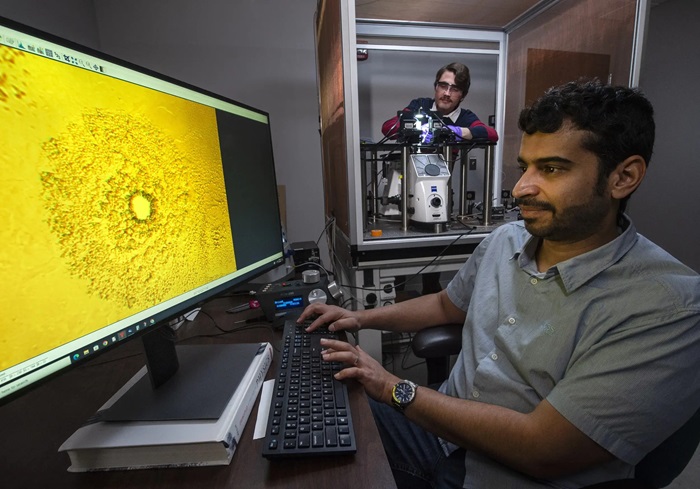Gold-Enhanced Nanopore Sensors Detect Ovarian Cancer Biomarkers in Urine Samples
Posted on 21 Feb 2024
The key to defeating cancer lies in its early and accurate diagnosis. Clinical data underscores this, revealing a significant 50-75% increase in the five-year survival rate when cancers are identified in their initial stages. This is true for various types of cancer, including ovarian cancer, which is notoriously challenging to diagnose. Mass spectrometry has been instrumental in discovering thousands of peptides in the urine of ovarian cancer patients, indicating their potential as biomarkers for the disease. However, the application of mass spectrometry in clinical settings is limited, prompting the need for alternative methods to detect these peptides. Now, a new study has found a novel technique to be effective in identifying specific biomarkers found in the urine of ovarian cancer patients, a development that could eventually aid doctors in diagnosing the disease more accurately.
Researchers from Virginia Commonwealth University (VCU, Richmond, VA, USA) employed a combination of gold nanoparticles and nanopore sensing to detect and categorize 13 peptides previously identified in ovarian cancer patients. Among these peptides is one from LRG-1, a protein biomarker increasingly recognized and typically found in the urine of individuals with ovarian cancer. This new technique holds the potential to simultaneously detect a wide array of peptides. Researchers hope that this comprehensive approach, when used alongside other diagnostic information (like the CA-125 blood test, transvaginal ultrasound, and family medical history), could one day provide a more accurate assessment of the presence of early-stage ovarian cancer.

“We are interested in ovarian cancer because it is particularly difficult to detect and requires the development of new sensors that could be made widely available for clinical applications,” said Joseph Reiner, Ph.D. “We envision that our approach could expand beyond ovarian cancer to other types of cancer.”
Related Links:
Virginia Commonwealth University













